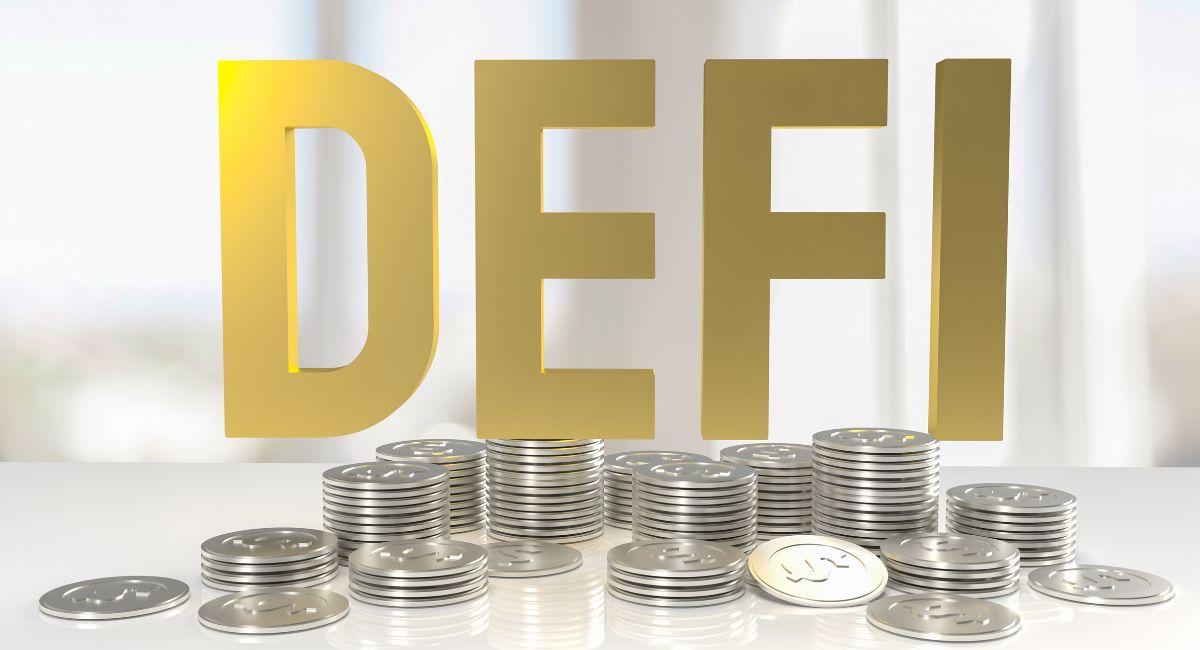January 12, 2024 by Diana Ambolis
410
AML stands for Anti-Money Laundering, and it refers to a set of laws, regulations, and procedures designed to prevent and detect illegal activities related to money laundering and terrorist financing. The goal of AML regimes is to ensure that financial systems are not misused for illegal activities by identifying and addressing the risks associated with
AML stands for Anti-Money Laundering, and it refers to a set of laws, regulations, and procedures designed to prevent and detect illegal activities related to money laundering and terrorist financing. The goal of AML regimes is to ensure that financial systems are not misused for illegal activities by identifying and addressing the risks associated with money laundering and the financing of terrorism.
Key components of AML regimes include:
- Customer Due Diligence (CDD):
- Financial institutions are required to conduct thorough due diligence on their customers to verify their identity and assess the risk they pose for money laundering or other illicit activities. This process involves obtaining information about the customer’s identity, source of funds, and the nature of the business relationship.
- Know Your Customer (KYC):
- KYC procedures are part of the CDD process, requiring financial institutions to have a clear understanding of their customers and the types of transactions they typically engage in. This helps institutions identify unusual or suspicious activities.
- Transaction Monitoring:
- Financial institutions implement systems to monitor and analyze transactions for unusual patterns or red flags that may indicate potential money laundering or terrorist financing. Unusual transactions trigger further investigation.
- Suspicious Activity Reporting (SAR):
- If financial institutions identify transactions or activities that raise suspicion of money laundering or terrorist financing, they are obligated to file SARs with the relevant authorities. SARs provide details about the suspicious activity and assist law enforcement in their investigations.
- Record-Keeping:
- Financial institutions are required to maintain detailed records of customer transactions and due diligence efforts. These records serve as evidence of compliance and can be used for audits or investigations.
- Internal Controls and Compliance Programs:
- AML regulations require financial institutions to establish and maintain effective internal controls and compliance programs. This includes training employees, conducting risk assessments, and regularly updating policies and procedures.
- Regulatory Oversight:
- AML regimes are overseen by regulatory bodies, such as financial intelligence units and central banks. These authorities set guidelines, conduct inspections, and enforce compliance with AML laws and regulations.
- International Cooperation:
- Given the global nature of money laundering and terrorist financing, international cooperation is crucial. Countries often collaborate to share information, align regulations, and coordinate efforts to combat cross-border financial crimes.
- Beneficial Ownership Disclosure:
- AML regulations may require entities to disclose their beneficial owners, ensuring transparency and preventing the use of shell companies for illicit purposes.
AML regimes are implemented at both national and international levels, with various jurisdictions adopting similar principles outlined by international organizations such as the Financial Action Task Force (FATF). Compliance with AML regulations is mandatory for financial institutions, and failure to adhere to these requirements can result in severe penalties, legal consequences, and damage to a financial institution’s reputation.
Also, read- Exploring Alternatives To Blockchain For Decentralized Finance (DeFi)
Top 6 Impact DeFi Has On AML Regimes

The rise of Decentralized Finance (DeFi) presents both opportunities and challenges for traditional Anti-Money Laundering (AML) regimes. In this exploration, we analyze the ways in which DeFi can affect AML efforts and the potential strategies to address emerging risks.
1. Pseudonymity and Privacy Concerns
DeFi platforms often allow users to interact pseudonymously, posing challenges for AML efforts that traditionally rely on identity verification. Enhanced privacy features can attract users seeking financial autonomy but may also raise concerns about illicit activities. AML regimes must adapt to the decentralized and pseudonymous nature of DeFi transactions.
2. Cross-Border Transactions and Jurisdictional Challenges
DeFi operates on blockchain networks, transcending geographical boundaries. Cross-border transactions within DeFi can complicate AML enforcement, as traditional regulatory frameworks struggle to keep pace with the decentralized and global nature of these financial activities. Coordinated international efforts are crucial to address jurisdictional challenges effectively.
3. Smart Contracts and Automated Processes
The use of smart contracts in DeFi platforms introduces automated processes for financial transactions. While this enhances efficiency, it also creates complexities for AML compliance. Traditional AML checks may not seamlessly integrate with decentralized and automated systems, necessitating the development of new tools and methodologies for monitoring and enforcement.
4. Decentralized Exchanges (DEXs) and Liquidity Pools
Decentralized exchanges and liquidity pools within DeFi enable users to trade assets without relying on centralized intermediaries. AML challenges arise as transactions occur directly between users, potentially bypassing traditional AML gatekeepers. Adapting AML measures to monitor decentralized exchanges without compromising user privacy is a key consideration.
5. DeFi Protocols and Yield Farming
Yield farming, a practice within DeFi where users provide liquidity to protocols in exchange for rewards, introduces novel AML challenges. Rapidly changing protocols and yield opportunities may attract illicit actors seeking to launder funds through complex DeFi mechanisms. AML regimes must evolve to identify and address emerging risks associated with DeFi protocols.
6. Regulatory Collaboration and Technological Solutions
Collaboration between regulatory bodies and the DeFi community is essential for developing effective AML frameworks. Regulatory clarity can guide DeFi platforms in implementing AML measures without stifling innovation. Additionally, the development and adoption of blockchain analytics tools can aid in tracking and identifying suspicious activities within decentralized ecosystems.
7. Education and Awareness
Raising awareness among DeFi users about AML regulations and the importance of compliance is crucial. Education initiatives can foster a culture of responsible DeFi usage and encourage platforms to implement robust AML measures voluntarily.
Is money laundering possible in DeFi?
 Money laundering is a concern in various financial systems, including decentralized finance (DeFi). While DeFi platforms aim to provide decentralized and open financial services, they are not immune to the risks associated with money laundering and other illicit activities. Several factors contribute to the potential for money laundering in DeFi:
Money laundering is a concern in various financial systems, including decentralized finance (DeFi). While DeFi platforms aim to provide decentralized and open financial services, they are not immune to the risks associated with money laundering and other illicit activities. Several factors contribute to the potential for money laundering in DeFi:
- Pseudonymity and Privacy:
- DeFi platforms often allow users to interact with the system without providing extensive personal information. While this aligns with the principles of privacy and decentralization, it can also be exploited for illicit purposes, making it challenging to trace the identity of individuals involved in transactions.
- Decentralization and Lack of Regulation:
- The decentralized nature of many DeFi platforms means that they operate without the traditional regulatory oversight that centralized financial institutions face. The absence of regulatory controls can create an environment where illicit activities, including money laundering, may go unnoticed.
- Permissionless Access:
- DeFi platforms typically offer permissionless access, allowing users to participate without requiring approval or identity verification. While this inclusivity is a core principle of DeFi, it can also attract individuals seeking to exploit the system for money laundering purposes.
- Smart Contract Exploitation:
- Smart contracts, the self-executing contracts at the core of many DeFi platforms, can be vulnerable to exploitation. Malicious actors might find ways to manipulate or abuse smart contracts to facilitate money laundering activities.
- Anonymous Cryptocurrencies:
- Some DeFi platforms operate using cryptocurrencies that prioritize privacy and anonymity, such as privacy coins (e.g., Monero). The use of these coins can make it more challenging to trace and monitor transactions for potential illicit activities.
Despite these challenges, it’s essential to note that the DeFi space is evolving, and efforts are being made to address security and regulatory concerns. Some measures and best practices to mitigate the risk of money laundering in DeFi include:
- Know Your Customer (KYC) Procedures: Some DeFi projects are exploring or implementing KYC procedures to verify the identities of users, enhancing transparency and reducing the pseudonymous nature of transactions.
- Integration with AML Tools: Some DeFi platforms are exploring the integration of anti-money laundering (AML) tools and services to monitor and detect suspicious transactions.
- Regulatory Compliance Initiatives: As the regulatory landscape evolves, some DeFi projects are proactively working towards compliance with existing and emerging financial regulations to address money laundering risks.
It’s crucial for participants in the DeFi space, including developers, users, and regulatory authorities, to collaborate and establish measures that balance privacy and security, aiming to minimize the potential for money laundering and other illicit activities in the decentralized financial ecosystem.
What difference will DeFi make in the AML landscape?
Decentralized Finance (DeFi) has the potential to bring about significant changes in the Anti-Money Laundering (AML) landscape. While DeFi introduces new challenges, it also offers opportunities to enhance AML practices. Here are several ways in which DeFi may impact the AML landscape:
- Pseudonymity and Privacy Challenges:
- Impact: DeFi platforms often allow users to interact pseudonymously, which can make it challenging to identify and verify the real-world identities of individuals involved in transactions.
- Response: Regulatory authorities may seek to address this challenge by exploring ways to incorporate more robust identity verification processes within the DeFi ecosystem. Some DeFi projects are already considering or implementing Know Your Customer (KYC) procedures to enhance transparency.
- Decentralization and Lack of Intermediaries:
- Impact: DeFi operates in a decentralized manner, without the need for traditional intermediaries like banks. This lack of intermediaries can make it difficult for regulatory bodies to exercise the same level of control and oversight.
- Response: Regulatory frameworks may need to adapt to the decentralized nature of DeFi. Authorities might explore collaborative approaches, involving industry stakeholders and technology experts, to develop effective regulatory measures that balance innovation with AML requirements.
- Smart Contract Exploitation:
- Impact: Smart contracts, central to many DeFi platforms, can be exploited for malicious purposes, potentially facilitating money laundering activities.
- Response: Security audits, ongoing monitoring, and improvements in smart contract development practices can help mitigate the risk of exploitation. Collaboration between the DeFi community and security experts can contribute to the development of more secure smart contracts.
- Use of Privacy Coins:
- Impact: Some DeFi platforms operate using privacy-focused cryptocurrencies, making transactions more challenging to trace.
- Response: Regulatory bodies may consider incorporating measures to address the use of privacy coins, such as enhanced transaction monitoring, collaboration with privacy coin projects to implement AML features, or potential restrictions on their use in certain financial activities.
- Innovations in AML Technology:
- Impact: The decentralized nature of DeFi may drive innovations in AML technology. Blockchain analytics, machine learning, and other technologies can be employed to detect patterns of suspicious activity.
- Response: Regulatory authorities and AML compliance tools may need to evolve to keep pace with technological advancements. Collaboration between DeFi projects and AML solution providers can foster the development of effective tools to combat money laundering.
- Global Regulatory Coordination:
- Impact: DeFi operates on a global scale, and regulatory approaches may vary across jurisdictions. Lack of global coordination can create challenges in enforcing consistent AML measures.
- Response: Enhanced international collaboration and coordination are essential to address cross-border money laundering risks in the DeFi space. Global standards and frameworks for DeFi AML compliance may be developed to promote consistency.
In summary, DeFi brings both challenges and opportunities to the AML landscape. As the DeFi ecosystem matures, regulatory authorities, industry participants, and technology developers will likely collaborate to develop solutions that strike a balance between privacy, innovation, and the prevention of illicit activities such as money laundering. The evolving nature of both DeFi and AML frameworks suggests that ongoing dialogue and adaptation will be key components of addressing the intersection of these two domains.
Conclusion
As DeFi continues to reshape the financial landscape, adapting AML regimes to mitigate associated risks is imperative. Striking a balance between fostering innovation and safeguarding against illicit activities requires collaborative efforts from regulatory bodies, DeFi platforms, and the broader cryptocurrency community. The evolution of AML strategies in the era of decentralized finance remains a dynamic and ongoing process.




 Money laundering is a concern in various financial systems, including decentralized finance (DeFi). While DeFi platforms aim to provide decentralized and open financial services, they are not immune to the risks associated with money laundering and other illicit activities. Several factors contribute to the potential for money laundering in DeFi:
Money laundering is a concern in various financial systems, including decentralized finance (DeFi). While DeFi platforms aim to provide decentralized and open financial services, they are not immune to the risks associated with money laundering and other illicit activities. Several factors contribute to the potential for money laundering in DeFi:

























































